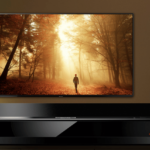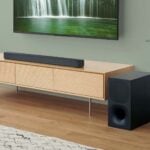Cy Jervis
Agent
- Joined
- Sep 27, 1999
- Messages
- 28
I've been researching on the forum about speaker wire for a house under construction and came across a link to this article about speaker wire http://home.earthlink.net/~rogerr7/wire.htm .
I noticed at the bottom a problem that was noted with the Home Depo wire corroding after 6 months and had a picture showing the clear cased wire was turning green. I happened to have some in my garage as well left over from a project at my father's house a few months ago and decided to check it out for myself. The wire had been in my garage and when I went to look I found that the wire was indeed starting to turn green with, some spots worse than others, all the way thru the cable. My first thought was that perhaps it was a reflection and my mind playing tricks on me so I cut off a peice in the middle and stripped the end. The wire was starting to corrode and the cover was turning green. I have since checked the wire at my father's and found the same problem in the attic portion of the wire, while the rest of the wire in the house was fine. Has anyone else had this problem? Is this only seen because the cover is clear, or do other wires have the same problem? I was trying to convince myself that I don't need expensive cables but this has me spooked about skimping because I only have one shot to wire the house while it is under construction and don't want to have to rewire.
I noticed at the bottom a problem that was noted with the Home Depo wire corroding after 6 months and had a picture showing the clear cased wire was turning green. I happened to have some in my garage as well left over from a project at my father's house a few months ago and decided to check it out for myself. The wire had been in my garage and when I went to look I found that the wire was indeed starting to turn green with, some spots worse than others, all the way thru the cable. My first thought was that perhaps it was a reflection and my mind playing tricks on me so I cut off a peice in the middle and stripped the end. The wire was starting to corrode and the cover was turning green. I have since checked the wire at my father's and found the same problem in the attic portion of the wire, while the rest of the wire in the house was fine. Has anyone else had this problem? Is this only seen because the cover is clear, or do other wires have the same problem? I was trying to convince myself that I don't need expensive cables but this has me spooked about skimping because I only have one shot to wire the house while it is under construction and don't want to have to rewire.





